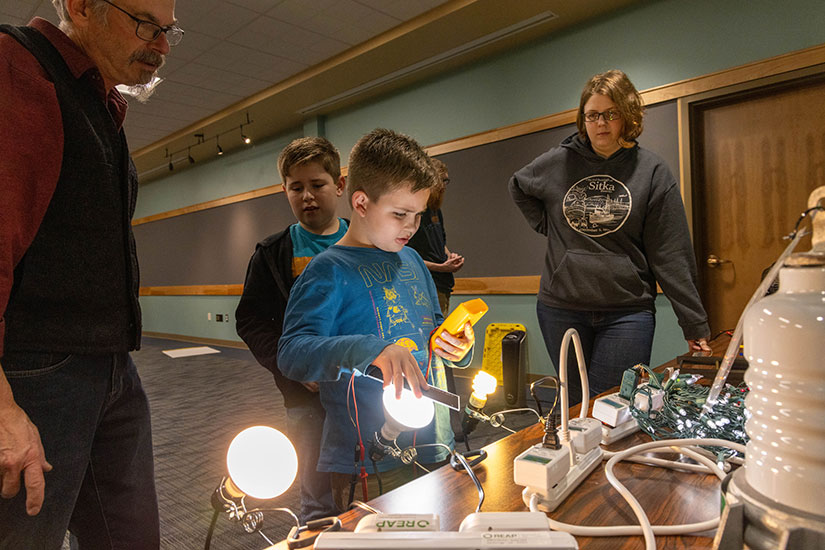Cohort 1: Sitka, Alaska
Sitka, Alaska, wanted to learn how to improve grid resilience and avoid future fossil fuel-based generation with technical assistance from the Energy Technology Innovation Partnership Project (ETIPP).

Project Summary
 Population Size
Population Size
8,400
 Technology Focus
Technology Focus
Wind, hydro, microgrids, and non-carbon-based fuel production
 Lead Lab
Lead Lab
Pacific Northwest National Laboratory
 Regional Partner
Regional Partner
Sitka is an island town in southeast Alaska. Seasonal lake hydropower and a diesel microgrid power Sitka, where high heating requirements, intensive hospital activities, and the seasonal fishing industry drive energy demands. Sitka partnered with ETIPP to identify opportunities for grid efficiency and energy generation that would be cost-efficient and reliable. ETIPP developed a model for the Sitka grid to assess energy potential from solar, wind, and ocean sources and evaluated green-energy export options to help Sitka reduce its carbon footprint and optimize its microgrid without negative consequences for ratepayers.
Project Outcomes
This successful project in Sitka demonstrated the strength multidisciplinary teams bring to complex problems. The team developed a grid model, identified wind energy resources for future use, and evaluated the potential for non-carbon-based fuel production from electricity that would otherwise be spilled over (released without producing power) to one of the community’s two hydroelectric dams. The team also worked to provide community education and developed a 7-minute video that helped the city communicate to residents the progress it had made toward its energy transition.
The ETIPP team created enduring relationships with staff at the City and Borough of Sitka, leading to the development of a second ETIPP project with the community. The work in this initial project laid a solid foundation on which the next ETIPP project can build.
Key Takeaways
A consequence of multidisciplinary technical assistance is identifying future problems teams can work on that fall outside the scope of a particular project. The ETIPP team enjoyed working with the City and Borough of Sitka Electric Department so much that it spawned multiple opportunities for continued collaboration if federal funding opportunities are dedicated to furthering the work identified in ETIPP engagements.
Opportunities and Impacts
The City and Borough of Sitka received a second ETIPP technical assistance award in July 2023. Work has begun to develop a comprehensive Community Renewable Energy Strategy, which will establish a shared vision of Sitka’s energy future and create a community-driven roadmap of short- and long-term policy actions to ensure Sitka’s energy reliability, resiliency, and independence.
Additional Information
Five Alaskan Entities Receive Technical Assistance From National Labs, Renewable Energy Alaska Project (2021)
New Federal Program To Help Five Remote Alaska Communities Transition to Renewable Energy, Alaska Public Media (2021)
Sitka's Energy Transition Journey, City and Borough of Sitka YouTube Video (2023)
Sitka Scores ETIPP Support To Develop Renewable Energy Strategy, KCAW (2023)
Study Finds Wind Power Is Sitka’s ‘Strongest Resource’ For Future Energy Needs, KCAW (2022)
Share
Last Updated Dec. 7, 2025
